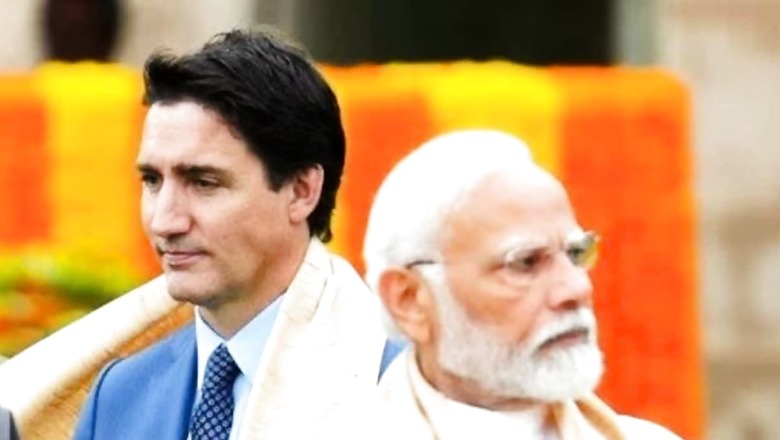
views
Where India and Canada have reached now is a rupture in relationships, said Omer Aziz, former foreign policy adviser in Justin Trudeau’s administration, during an exclusive conversation with CNN-News18 on Tuesday in the thick of a snowballing diplomatic conflict between New Delhi and Ottawa.
“2017 was a very critical time in global affairs where a number of the issues that we are seeing today between India and Canada could have been resolved or put on a better course. This is the purpose of diplomacy. It is to keep talking. It is to seek out mutual interests and where we can work together. And then where there are challenges, we address those together domestically through our allies, and if we’re invested in a bilateral relationship with a country, then we take their issues into consideration," said Aziz.
It was very difficult for the two foreign ministers to meet at that time, back in 2017, Aziz recalled. “What was worrying was that even when the Indian government wanted to talk or the Indian foreign minister wanted to talk, I often felt that we either didn’t want to listen, or we didn’t have the time to listen," he said. “So that’s a function of a lack of priorities. Because I saw India as a rising power and that they were bringing this issue to our concern, and so it was worth addressing very seriously. Where we have got to now is a rupture in relationships. This is what happens when you don’t have an interest in a country’s bilateral relationship, where it’s superficial. And what I’m hoping for now is what I’d been hoping for then, that diplomacy will prevail and not just hard politics and tough talk."
Reporting suggests that the US may have provided key intelligence to implicate agents of the Indian government and security services in the killing of alleged Canadian Khalistani separatist Hardeep Singh Nijjar, said Aziz. “So the intelligence is there and he (Trudeau) is the democratically elected prime minister of Canada. Could he have given someone else to announce this? Could this have been discussed privately? Sure. But I think the political calculation was made and perhaps the national security calculation as well that the prime minister has to get ahead of it, because it had also already been leaked that this has occurred," he said. “And in democracies, it is difficult to keep information closed and away from the people often, so it was going to get out anyway, and the prime minister wanted to address it head-on because it raises some very very serious implications and consequences."
Free speech is protected in Canada and no prime minister can dare challenge that, but once speech turns into money and crosses borders, it’s implicating foreign policy, he said.
“My perspective here is de-escalation; work with the Indians where we can, and help resolve this issue. Because this issue, involving Khalistan, should not be the one that disrupts the global order, and that’s what I worry is about to happen," Aziz told CNN-News18.
In the Sikh community in Canada, there is a large amount of diversity, and a few opinions cannot define the entire community, he said.
“I would be remiss if I didn’t mention the 1985 Air India bombing, which was a huge trauma not just for India but also for Canada. I know people who knew people on that flight. So we are not that far apart in terms of degrees of separation, and the pain on this goes deep, for Sikhs, for Indians, and for Canadians as well," said Aziz. “Both political parties, to be very blunt, the Conservative Party and the Liberal Party, began doing this ethnic pandering to win votes, partially because they didn’t understand these communities. They weren’t interested in who’s a Sikh vs a Muslim vs a Hindu, or what are the ways that people actually live here, because in Canada everyone seems to just get along. My worry is that the communalism and sectarianism that have bedeviled India and South Asia for so long…it would be a real tragedy if we start to see that here…I don’t share Jagmeet Singh’s accusation that every Sikh in Canada is facing danger."
There is a need to calm the temperature and allow sober analysis and rationality to reign, stated Aziz.
“From a foreign policy perspective, we cannot allow certain domestic constituencies or issues to distort our long-term foreign policy priorities, which are a lot more complicated and comprehensive and long-term than a non-issue like Khalistan," he said.

















Comments
0 comment